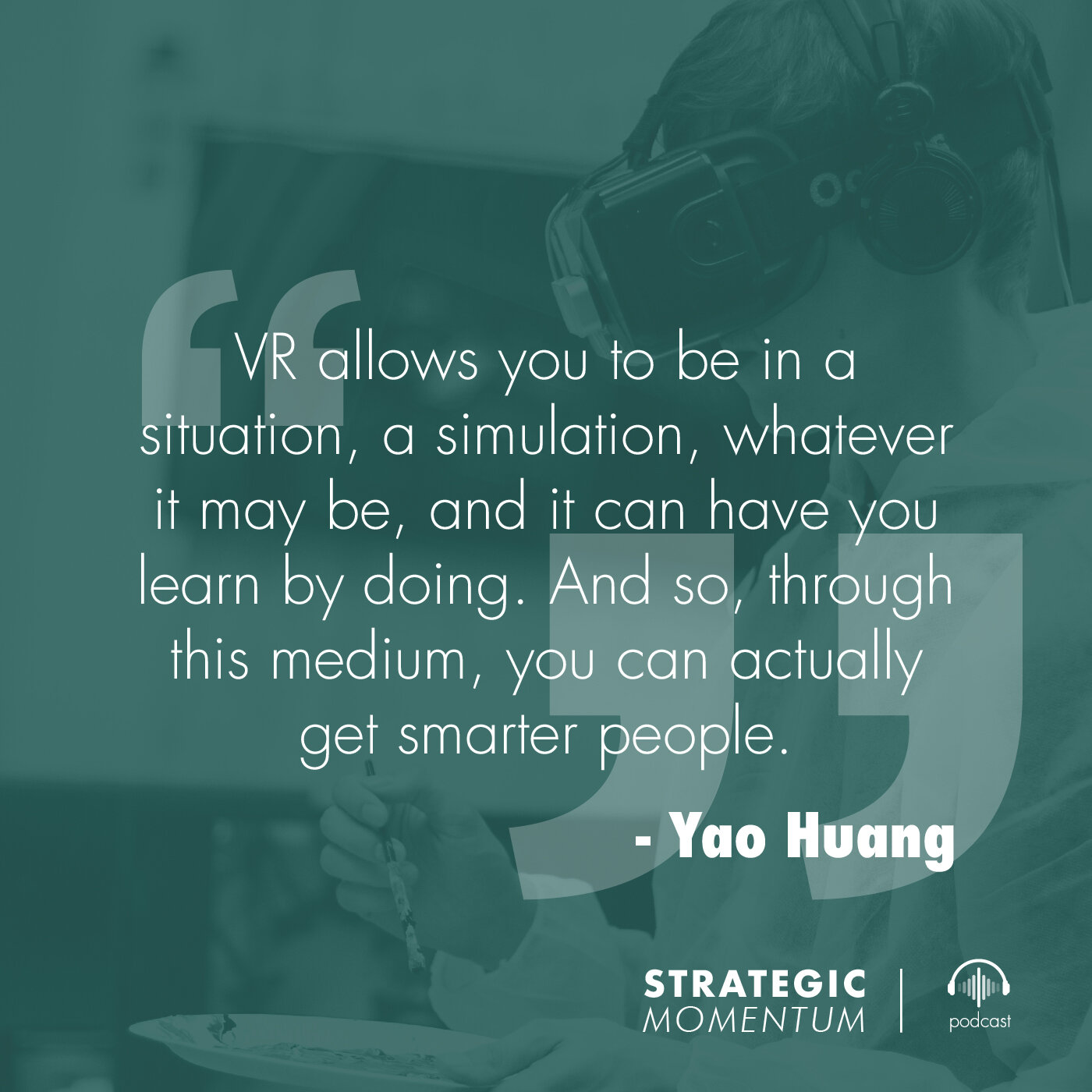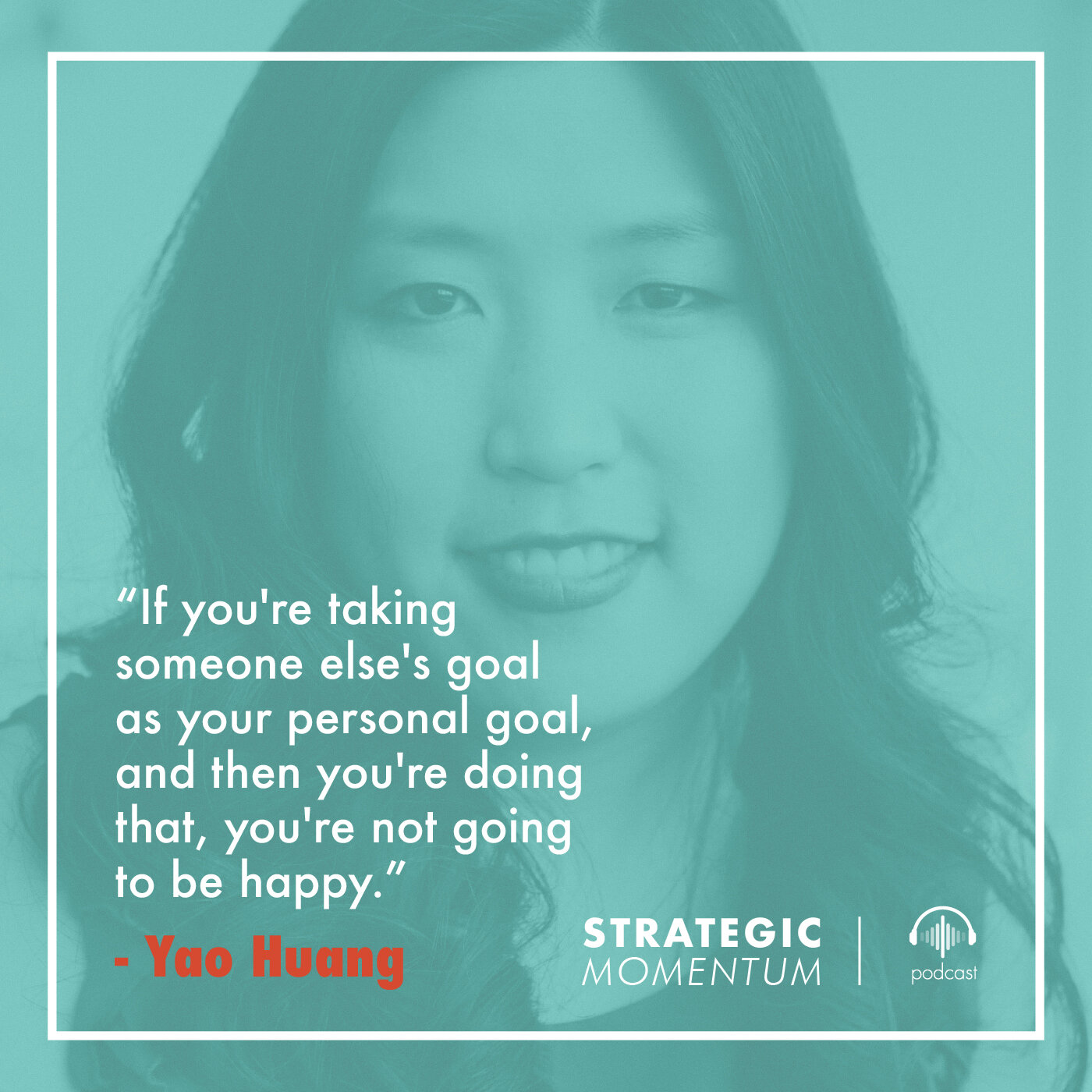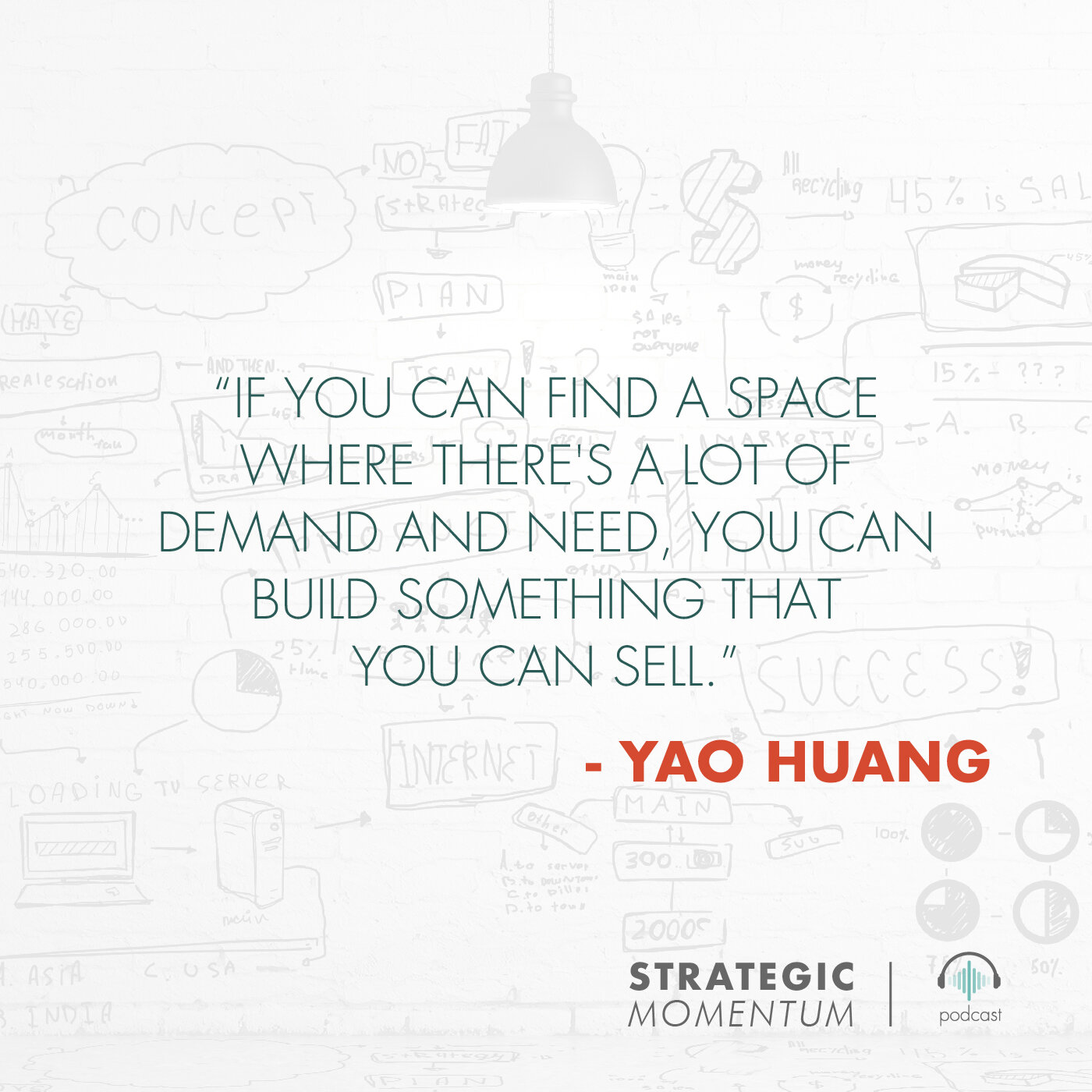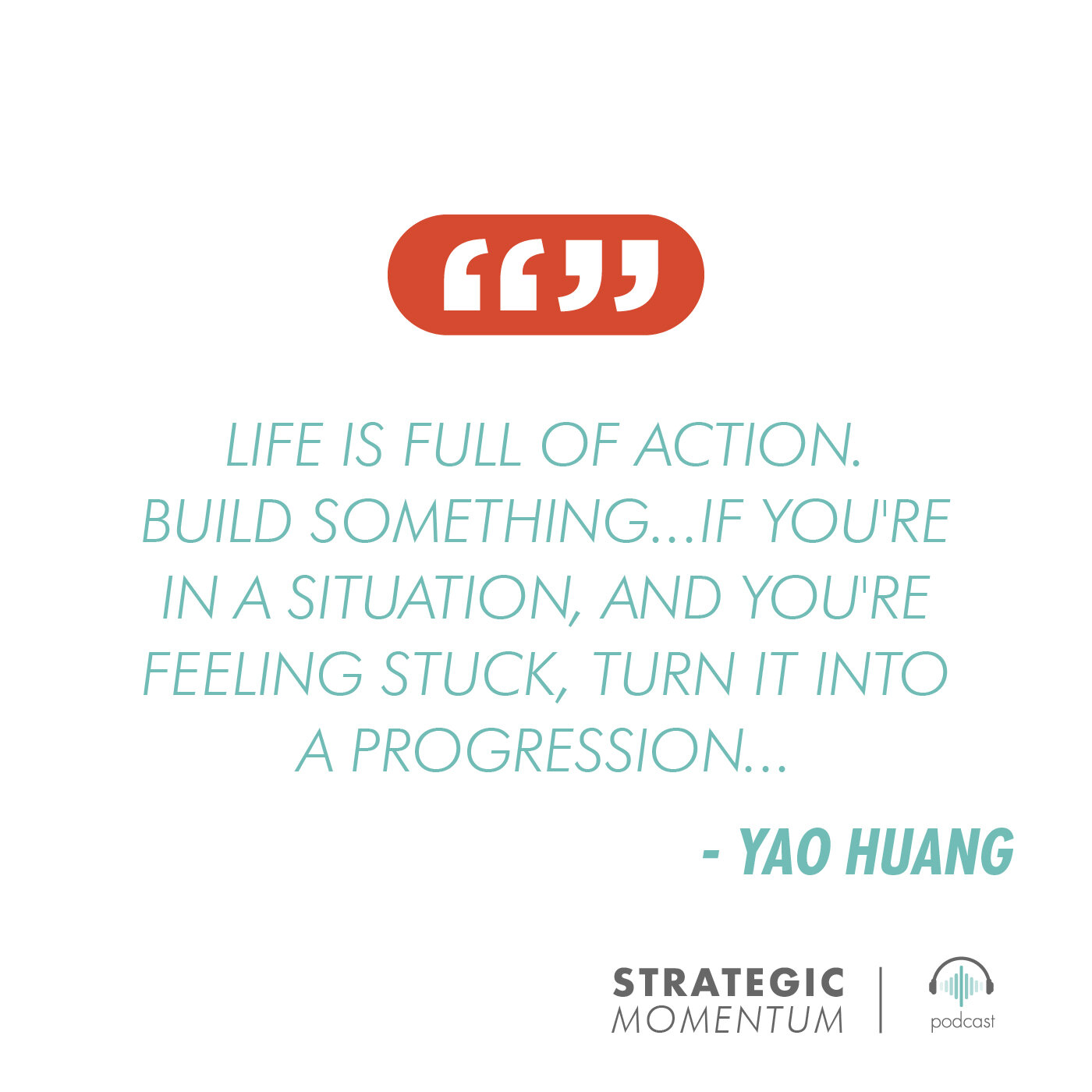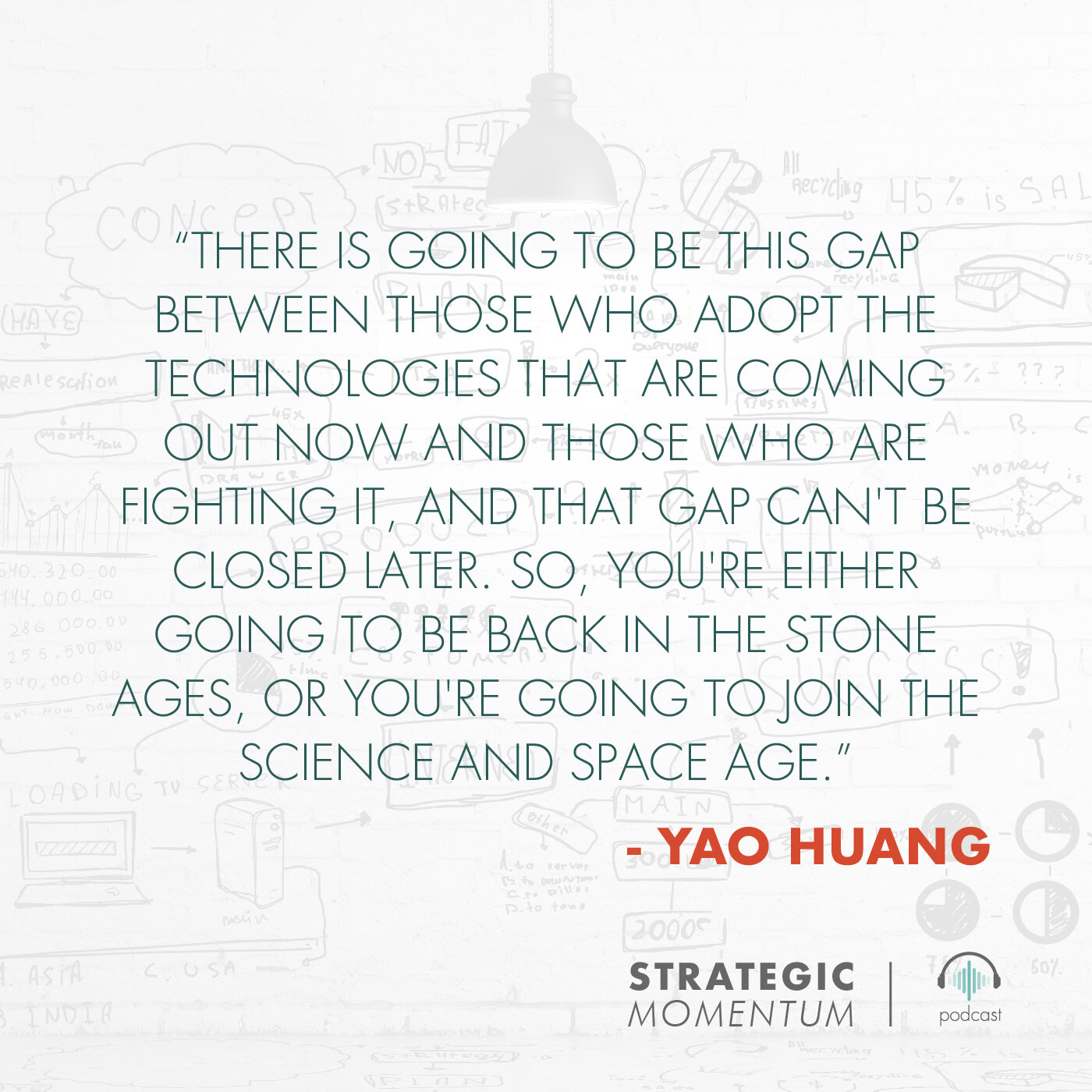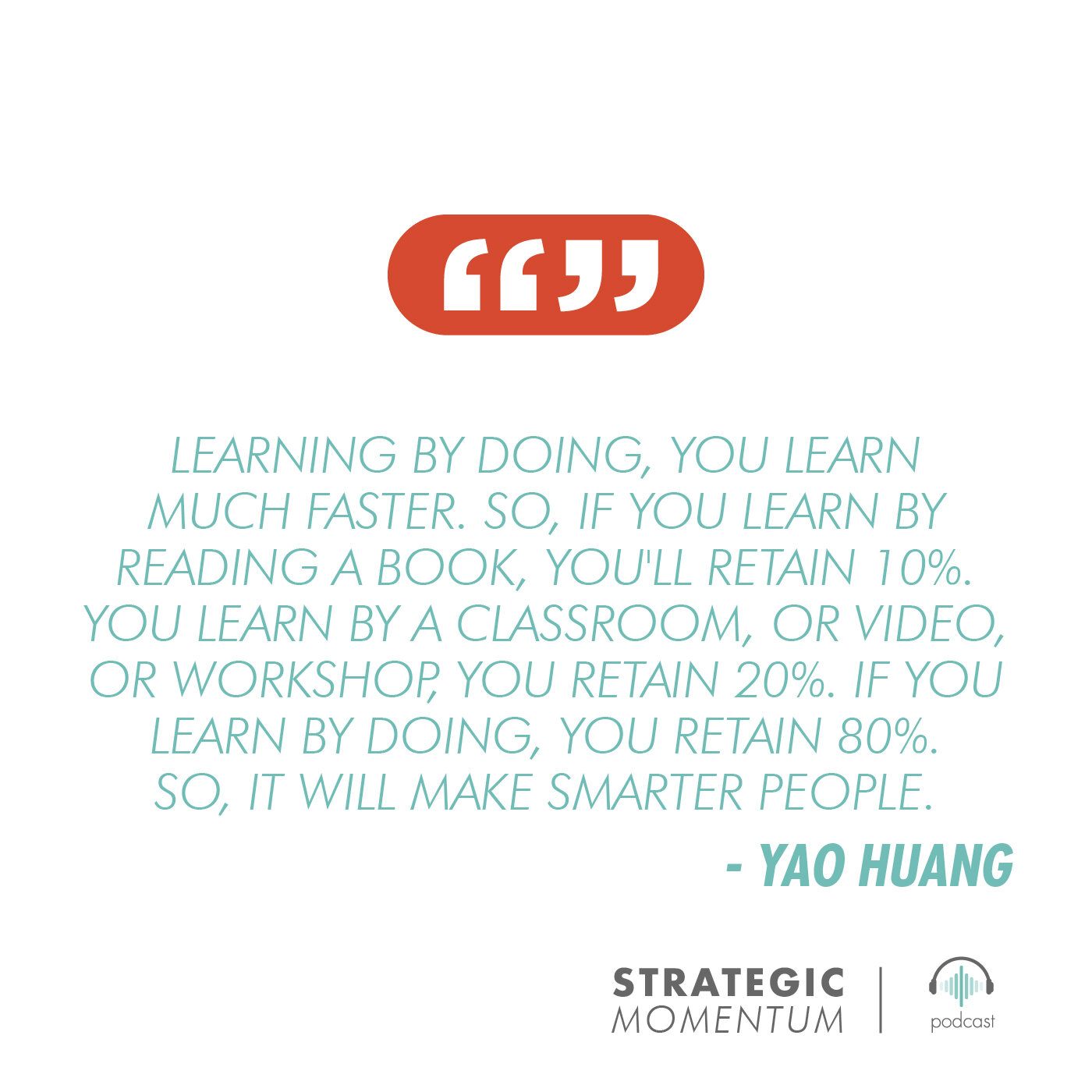Ep. 54 - The Power of Virtual Reality: Learning by Doing to Drive Business and Social Impact - with Yao Huang
Find Us Wherever You Listen To Podcasts
In today’s era of rapid innovation, companies of all sizes must constantly evolve in order to remain competitive. Disruption can happen at any time, so staying ahead of the curve is no longer a differentiator, but a necessity. But innovation for innovation’s sake is not enough.
With continued consumer expectations that products and services focus on the greater good, businesses have a new opportunity to disrupt markets through purpose-driven innovation. Yao Huang is the Founder and Managing Partner of The Hatchery, an organization instrumental in developing the New York technology ecosystem with an international advisory consultancy and incubator.
Named by Forbes as one of eleven women at the center of New York’s digital scene, by Beta Beat as one of 25 Women Driving New York’s Tech Scene, and as one of TechWeek’s 100 most influential people in tech, Yao believes in leveraging technological disruption and innovation to scale social impact. One of those areas is Virtual Reality (VR).
In this episode, Yao shares how VR is redefining the way we learn for the better and the value of harnessing this form of learning by doing to propel businesses forward.
From Pharma to Tech to Comedy: The Pursuit of Happiness and Purpose
Yao’s non-linear career journey, led by her desire to constantly pursue new areas of interests in her pursuit of finding happy, fundamentally shaped her personal and business philosophies.
She always knew she wanted to do many things and not have a career that would be narrowly defined. However, pressure from her parents to pursue a career in the medical field led Yao down the initial path to earn a doctorate in Pharmacy. Thus she began her career in the pharmaceutical industry where she was very successful in the way society deemed successful.
“I did really well, made lots of money. And as a young person, I hit everything you're supposed to do in our society. You're supposed to buy a house, supposed to buy fancy cars, supposed to go on fancy vacations, all that stuff. I was like an advertiser's dream…”
But she eventually became bored and wanted more out of work and life. During that time of the first internet boom and even the first collapse, she was intrigued by the internet’s potential and knew it was going to be something really meaningful in everyone’s life and society. And she wanted to be involved in it.
Thus her second career started as an entrepreneur where she founded her first tech company and garnered continued success on that front. But eventually she “got bored again because once [the company] got over the building stage, it became redundant.”
So Yao went on to start other companies and in these experiences, she learned what she loved most is the building portion of it. It’s this love for creating that led to the start of her incubator, The Hatchery in 2007, to “foster an environment where innovation can thrive.”
And throughout her own career path of testing and learning along the way, she has even dabbled in stand-up comedy, among other personal interests. She realized the importance of fulfillment in her work and life, listened to her inherent need to be happy and subsequently took risks and tried new things. It was all about redefining her own purpose and creating that social impact.
Redefining the Path to Successful Innovation
Her choice to want to build things, redefine the success points, and thus determine ways to do things differently was the impetus behind her Incubator, The Hatchery.
“How the incubator runs, it's more about the present, and what companies need to grow now. It's not really about the past, and it's about being innovative with current times. And I'm shaped by what I see and what these companies need.”
Yao found a way to derisk start-up investments by being able to build these businesses quickly (a time horizon of three to five years) so that it not only gives early stage founders an easier path to make their ideas a reality, but also helps them achieve their success goals and maximizing their happiness.
Employing Virtual Reality to Drive Beneficial Business Impact
When it comes to innovation and disruptive technologies, a major area of focus for The Hatchery is virtual reality. While the awareness of its application may be more narrow today, the value and benefits have been known for sometime.
Doctors and other specialists are already training with VR simulations and treating patients with telemedicine. But the opportunity to advance today’s workforce by providing immersion-based learning through this technology is much more vast.
But why haven’t more companies adopted VR into their internal and external operations? Yao notes that fear of the unknown and hesitation toward decision-making are keeping people from making the leap. The best way to combat this is to start small, identify practical use cases that would have immediate benefits, and slowly roll out VR to the rest of the organization.
But what’s important to remember is that it isn’t about putting the technology first - it’s about purpose, impact and having an open mind to thinking and acting differently - trying something that’s never been done before.
Yao’s Career Advice
“If you're taking someone else's goal as your personal goal, and then you're doing that, you're not going to be happy.”
“You just have to not care about what everyone else thinks and put9 their goals and judgments on you...Otherwise, you're making choices based on someone else. You'll never be happy. You'll never hit the goal.”
“Life is full of action. Build something...If you're in a situation, and you're feeling stuck, turn it into a progression.”
Key Takeaways:
The ability to learn by doing is a key advantage of applying VR technology. While the delivery method is different, the functional activity remains the same. Think of it as a very modern form of education.
“VR allows you to be in a situation, a simulation, whatever it may be, and it can have you learn by doing. And so, through this medium, you can actually get smarter people. “
Learning by doing is statistically the best way to absorb and retain knowledge. “If you learn by reading a book, you'll retain 10%. You learn by a classroom, or video, or workshop, you retain 20%. You learn by doing, you retain 80%.”
VR’s training capabilities are virtually limitless and are especially useful in low-risk hard skills development. You can learn Spanish by simulating living in Spain without the embarrassment or potential danger of mispeaking. Or a lawyer can practice arguing a case in a simulated courtroom without the real ramifications of a lost trial.
The more expansive use of VR to advance learning and development in organizations is primarily hindered by a lack of knowledge and perception that it is “too big of a leap” to take on. With costs continuing to decline rapidly and content being available, there is a great opportunity to step into it and be strategic about how it can be leveraged to have maximum impact.
To create that adoption traction, Yao recommends starting small with specific use cases first and experimenting to see where you can drive the greatest benefit.
When it comes to getting buy-in, remember you don't have to convince everyone. Some people are very fear-driven and have a “follow” mentality, making it difficult to convince them to adopt new technology.
But because there is an uptick in AR and VR right now, as more and more companies see the benefits, VR will eventually get around to everyone.
It’s important to adopt new technology early on, especially when it comes to virtual reality, because it is evolving so rapidly. By the time you catch up to today’s standards, your competitors will already be years ahead.
Personal development and happiness > wealth development and status.
Open yourself and your business up to a world of opportunities that may not have existed.
At the end of the day, finding that purpose to deliver impact is the most important factor of above anything else.
Resources:
Connect with Yao: Linkedin
Watch Yao’s Tedx Talk
Subscribe to the Strategic Momentum podcast:
On Spotify








